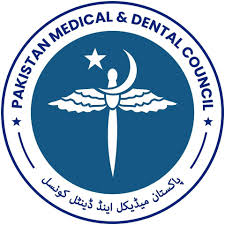Pregnancy-Induced Hypertension and Gestational Diabetes Impact on Fetomaternal Outcomes in COVID-19-Positive Women Hospitalized for Delivery
DOI:
https://doi.org/10.37018/JFJMU/9854Keywords:
COVID-19, Comorbidities, Gestational diabetes, Pregnancy induced hypertension, Fetomaternal outcomeAbstract
Background: Studies evaluating the impact of pregnancy-related disorders among COVID-19-positive women on fetomaternal outcomes remained scarce. Therefore, we assessed the impact of pregnancy-induced hypertension (PIH) and gestational diabetes mellitus (GDM) on fetomaternal outcomes in COVID-19-positive women hospitalized for delivery.
Patients and methods: A review of medical records of 37 COVID-19-positive pregnant women hospitalized at Sir Ganga Ram Hospital Lahore from April to June 2020 was performed. Data retrieved included demographics, comorbid illnesses, and maternal and fetal outcomes. Using SPSS v.26, a Chi-square test was done to assess the impact of comorbid illnesses on fetomaternal outcomes.
Results: The mean age of the cases was 25.8 ± 4.6 years, the gestational age was 37.5 ± 1.2 weeks, and the frequency of primigravida was 24.3%. PIH (n = 08, 21.6%) was the most frequent comorbid illness followed by GDM (n = 05, 13.5%). Women with comorbid illness showed statistically significant differences for cesarean delivery (64.3% vs. 35.7%, p-value = 0.022), duration of hospital stay (8.2±3.8 vs. 5.6±1.6 days, p-value = 0.009), low birth weight (85.7% vs. 14.3%, p-value = 0.007), NNU admission (60.0% vs. 40.0%, p-value = 0.009), and marked differences for both maternal and neonatal mortality (100% vs. 0.0%, p-value = 0.078) as compared to women without any comorbid illness, respectively.
Conclusions: Comorbidities including PIH and GDM among COVID-19-positive women hospitalized for delivery, had a higher incidence of adverse fetomaternal outcomes and longer hospital stay. These findings suggest that women with comorbid illness require personalized treatment to prevent or decrease poor pregnancy outcomes.
Downloads
Published
How to Cite
Issue
Section
License
The Journal of Fatima Jinnah Medical University follows the Attribution Creative Commons-Non commercial (CC BY-NC) license which allows the users to copy and redistribute the material in any medium or format, remix, transform and build upon the material. The users must give credit to the source and indicate, provide a link to the license, and indicate if changes were made. However, the CC By-NC license restricts the use of material for commercial purposes. For further details about the license please check the Creative Commons website. The editorial board of JFJMU strives hard for the authenticity and accuracy of the material published in the journal. However, findings and statements are views of the authors and do not necessarily represent views of the Editorial Board.

















